Nigel Charles has been a professional donor organizer for the last seven years. He started as the Director of Donor Organizing at Bread and Roses Community Fund in Philadelphia. There, he led a cross-class, multiracial crew in learning how to become skilled, bold, class-conscious donors and fundraisers to local social justice organizations and movements. These days he works at Solidaire organizing their primarily white and wealthy individual member base to understand their own stake and strategic role in collective liberation movements and embrace their power and protaganism as donors, fundraisers and peer organizers.
I love Nigel’s deep commitment, heart and generosity in this work. I am delighted to share this piece in which he reflects on the way his early life shapes his approach to organizing the rich towards justice.
Childhood Lessons
I’ve been reflecting a lot on childhood lessons, ways of being I naturally absorbed while growing up in a working-poor, single-parent Black family.
Unknown to me then, the wisdom of the poor, the immigrant and the Black family was being embedded in me and would become guideposts that lead me in my work as a donor organizer.
There was no perceptible way that “little Nig-ee” (my grandma’s nickname for me) could know that, many years in the future, he would be organizing towards a world of racial, economic, social justice — but in hindsight it makes sense.
By the sixth grade I had a keen understanding of the ways that access to resources impacted the quality of my education, food, healthcare and life. I understood that poverty is expensive - families who had better access to a grocery store were paying less for the same food I got at the corner store. I understood that government run programs had preferential treatment based on social location - free lunch at my all black elementary school paled in comparison to the lunch at the downtown magnet school I attended for middle school. I understood that we did not all have the same access to information - I could only carry home a limited number of books from the library while other students could do research on their household computers. I also saw how my people resisted these systems, creating hope and pathways to a better future.
In this article I reflect on some of the childhood lessons that I’ve found most useful in my work. I want them to be known and seen. I want to celebrate and honor the power of my family and my community, and the way they have enabled me to move others.
Woven into my story are glimpses of a different world. In this world collectivism, connection and community are embraced, shaping the ways we move and interact with each other.
For much of my life I did not know that these early life lessons were different from the ones many wealth-holders were receiving in their formative years. It wasn’t until my time at Bread & Roses Community Fund in Philadelphia that I learned their full power.
At Bread & Roses, I worked with cross-class, multiracial and intergenerational groups who believed in the power of community organizing to challenge existing systems of oppression. Through the Giving Project model, we brought together cohorts of community members across race and class to engage in political education, organize resources — people and money — and make grants to local community organizing efforts in Philly. As the Director of Donor Organizing, I would share my stories with these groups to deepen our sense of connection, only to find that the values I believed to be universal — such as belonging and responsibility to one’s community — felt foreign to many of the wealthier people in our community.
It was while leading those groups, sitting in on those meetings, that I realized that these lessons could be especially supportive to owning class people looking for different ways of being, different ways of moving money and different ways of relating to their families and loved ones.
Now, in my role as a Donor Organizing Strategist at Solidaire Network, I have come to see these lessons as one of my movement superpowers. I experience over and over that my mom, my pastor, my family and my community are always with me, helping move the hearts and minds of the wealthy people I organize.
The Meaning of Family
My mom immigrated from Trinidad and Tobago to the U.S. at the age of 18, with very little means. She raised my brother and me on her own, figuring things out in ways I still find hard to fully grasp. As the sole provider for our small family unit, she ensured that we understood the value of each dollar. We knew how to take advantage of discounts while grocery shopping, how to stick to a budget and how to make things in the house last. As she was solely responsible for two boys, no one would critique her for keeping her focus narrowed on the two of us, but family had a much more expansive definition to her.
We learned that family is about who’s invested in you and who wants the best for you — not just bloodlines. Your mom’s best friend’s kids are your cousins, the family friend who checks in on you is your uncle and the congregation members you see every week are your siblings. We contributed to the betterment of all of our families’ lives, and they did the same for us. And none of that got in the way of us improving our lives.
One day, out of the blue, my mom told us we were moving from our one-bedroom apartment into a house — no warning. But that’s how she was: always finding ways to improve our lives, for all of our family. Our home became the place for family gatherings, where tired mothers dropped their babies off for a night of rest, and for folks in-between living situations to stay for a while.
In this work I’ve learned that my expansive understanding of family is a shift from how many wealth-holders are socialized. Oftentimes, the emphasis in wealthy families is on preserving a rigid idea of ‘legacy’ tied only to your blood relations.1 In practice this can mean that land, money and institutional power must stay within the family, with any larger sense of social responsibility limited to a token commitment to charity.
My upbringing proved that two things can be true — the family unit can be taken care of while investing in the lives of others. Even more than that, we could take on more people as family, making their challenges our own, and build a stronger system of support along the way.
Do the Right Thing
Walking home from school with an honor roll certificate in hand, I began to plan what I would do with the $1 for each “A” I would receive. I had received $4 for my grades at the end of the last marking period, so my current 7 A’s felt lush. Although my teacher had written on the bottom of my report how I had the tendency to distract other classmates when I had completed my work, I was confident my mother would have grace on me.
I strutted down the street, dreaming of all the snacks I would buy at the corner store. This was not a time for budgeting! I had grand plans to splurge on all the snacks the corner store could offer. When I got home, I considered calling her on the phone to share the news, but thought better of it. She was still at work and I wanted her full attention. Once she was home I would break the news and receive my reward.
Imagine my shock when my reward was given in the form of a life lesson, not physical currency: “You do what you're supposed to because it's the right thing to do.” It felt like my mom was moving in slow motion as she lovingly reminded me that my education was the real reward.
It would take me years to understand that she was also saying that we did not have extra money at the moment, and even longer to fully understand what she meant about the “real reward.”
The expectation for a reward in the world of philanthropy is a real phenomenon. For the right amount, your name can be added to an acknowledgment, a program or even a building. I remember hearing the frustrations of wealthy donors, from a lack of acknowledgment, spilling over during the 2020 Uprising and the Standing Rock protests. While movement leaders were focused on the immediate safety of activists and the urgency of defeating a disastrous pipeline, many donors struggled with the same thing my third-grade self did. They did not understand that the movement groups, much like my mother, had nothing left to give to them.
In practice, I try to prepare donors early on: when you give, the organizations you support might not be able to acknowledge you right away. The chronic underfunding of movement work, maxed out staff, and a general lack of fundraising capacity and training, often results in traditional development related tasks being neglected. As frontline organizers put their bodies on the line to create a just and equitable world for us all, we should approach them with patience and grace. Whether a donor receives a thank you or not, the “real reward” will likely take years (maybe decades or generations) of consistent effort before it can really be enjoyed and appreciated. Like my mother taught me, I encourage the donors I work with to do the right thing because it is the right thing. Giving isn't about the pat on the back; it’s about doing what needs to be done.
What if we saw our giving to movements in ways beyond acknowledgment/reward? What if we saw our contributions as a way of becoming a part of movements, adding our resources, skills and experience to the cache of tools we use to craft our collective future? What if we focused on the “real reward”: a just and equitable world for all of us?
All of Us or None of Us
My brother and I loved playing video games. We saved money from birthday cards and found odd jobs just to buy used games at the local Electronics Boutique, blocks away from our house. We would carefully trade in old games to get new ones whenever we could.
One fine day, my mom decided to help us buy a used Super Nintendo to add to our gaming collection. So much had to go right to make this moment possible. My mother didn’t often have extra money to contribute to larger recreational purchases, but the used console being on sale and a small bonus from work opened up a window for us. My brother and I had to contribute as well, trading in some of our video games for store credit and using up our savings. We were so excited to have multiple games systems! It was to be a glorious time.
Plot twist! Our mother had other ideas than letting us stockpile multiple video game systems. Our good fortune meant we would be passing along our old Nintendo system to someone else, namely our cousins, who had recently moved from Trinidad & Tobago to Washington D.C.
We tried to resist as she had us pack up our old Nintendo. We shared our grand plans of collecting multiple systems and games to fit any mood. We discussed the economic benefit of holding onto it, knowing that video game consoles accumulated value over time. She was resolute; she refused our plan to “move up” without bringing others with us. Our moment of blessing meant we could be a blessing to someone else. We couldn’t hold onto something for an expanded benefit when others didn’t have. We couldn’t hold onto something for future benefit when others could benefit from it right now.
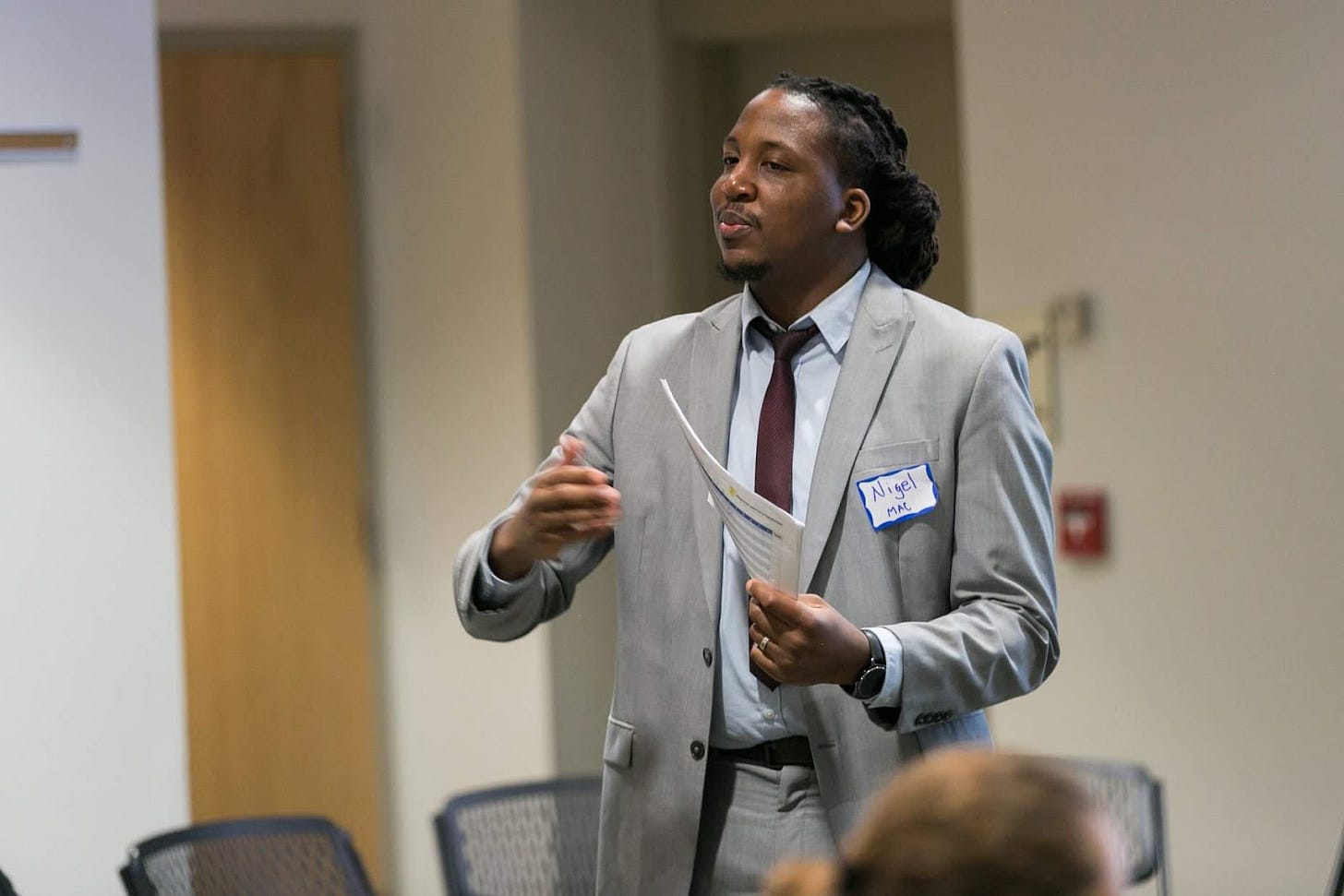
This story is about video games, but as children, the games were our wealth. Although we were raised to share without having to be asked, this moment pushed our growing edges, asking us to put theory into practice. We had clear systems for how to take turns playing the game, brought our system to the houses of friends who didn't have one so they could enjoy it and let friends borrow games at times. But this moment required more of us. This moment asked for us to let go.
Letting go can be hard even when it is aligned with our values. My brother and I knew that an upgraded system would meet our entertainment needs, but having excess was our aim at that moment. To have more games to choose from than we could ever actually play felt like a luxury we had worked hard for. It took my mother to remind us that our luxury was directly related to our cousin's lack.
Grounded in her experiences as a Trinidadian child in a working-poor family, my mother was able to provide clarity on how our motives were misaligned with our family’s values. She understood the relationship between lack and excess better than we did, and provided guidance in a challenging moment.
Similarly, working class professionals in the philanthropic sector often tap into their experiences to provide greater perspective to owning class donors. In my personal story this type of guidance meant making a difference in my cousins’ lives. In the philanthropic sector this guidance can mean making a difference in policies that impact millions of lives.
As I work with wealthy donors I often lovingly push their growing edges, asking them to move more money to movements for justice. In many cases their self-imposed limitations are cemented in lessons of individualistic upward mobility, creating legacy foundations that last in perpetuity, and fear of losing the social benefits connected to their wealth. Ironically, these same people share with me that they crave community, want to meaningfully engage with their family outside of foundation giving and feel limited by the unwritten rules of how they must behave in certain social settings. To them I offer my stories of a different way of being and different ways of thinking about what is enough: a world where we embrace collective responsibility and contribute where we have abundance.
The truth is that we never actually missed that old Nintendo.
Filling the Barrel
My childhood church remains integral to my understanding of collective giving. Most of the members of that church immigrated to this country from the Caribbean, leaving family members behind. In fact, many of them came to this country with the primary goal of sending resources back to others. Many quickly realized that climbing the class ladder was way harder than they expected, making it challenging for them to fulfill these commitments to their loved ones. Still, they leaned on the practices of collective giving that they had previously learned and benefited from.
Every now and then a church mother would show up to the church with an empty 55-gallon barrel and a list of people in mind who needed help. The case never had to be made — just an announcement to our congregation and people moved to action. For the next few weeks, we all gave from our excess and invited our friends and family to do the same. None of our wardrobes or pantries were the largest, but it never took long to fill the barrel, or several, with clothing and food.
I love to reflect on this story because it reveals a simple truth about collective giving. None of us could fill the barrel alone, but together it never took long. I am encouraged that in the philanthropic world, collective giving programs, like the Philadelphia Black Giving Circle and Network, are being developed throughout the field, providing opportunities for connection and increased giving.
Still, I have a deeper desire for donors resourcing movement work. I long for a day when all donors, especially wealthy donors, commit to and find a place of political home, much like the members of my childhood church found a spiritual home.2 Our sense of home created the opportunities for our church mothers to clearly communicate the needs of others. It provided a centralized place for people to give their donations. It helped us to coordinate quickly and invite our extended community to participate as well. It also meant that when people were in need, they knew where to find us. Through the safety and trust of this congregation, our contributions were valued, and we could take pride in our shared achievements. I think these components can directly translate to the more formal world of philanthropy. I hope that as owning class donors continue to engage in collective giving projects, they also seek places where they can build community and be politically grounded.
Lessons That Shape Us
One of the most enjoyable parts of this work for me is telling my stories and creating space for donors to share theirs. As we share with each other it becomes apparent that the lessons that ground me show up in their lives as well, regardless of their background. Moments of collectivism, community and connection are a part of the human experience, regardless of the socio-economic status we were born into.
Whatever your background, I encourage you to identify your own personal stories where these themes make an appearance. As you reflect, explore the feelings that come up for you. No matter how these values show up in your life or the lives of your ancestors, you carry these stories and experiences with you and deserve to spend time reflecting on the parts that are fulfilling. You can do this even while challenging any messages of individualism, isolation and competition that you find, and that are in opposition to the vision of the world you want to bring into being.
Everyone has something positive from their heritage they can identify with, and it is important for us to look for those spots to ground us as we give and organize. Just as I have my mom and my community at my back, supporting me wherever I go, I want each of the wealthy people I work with to feel and claim the humanity and courage of the people who poured into them.
So what’s your story?
What lessons did you learn about wealth and giving as a child? How do your childhood lessons on collectivism, community and connection inform the ways you give now?
I’d love to hear your story!
Like this piece? Appreciate this project? Let us know what you think by commenting below, liking this post and sharing with others.
For more on this tendency in wealthy white families, read Iris Brilliant’s excellent article How the Wealthy White Family Forbids Wealth Redistribution.
Want to help wealthy people find a political home for their redistribution efforts and progressive values? Check out “Welcome Home! An Organize the Rich Cheat Sheet.”

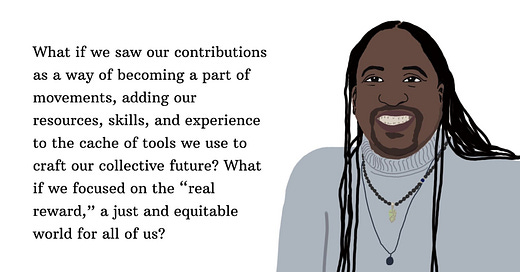



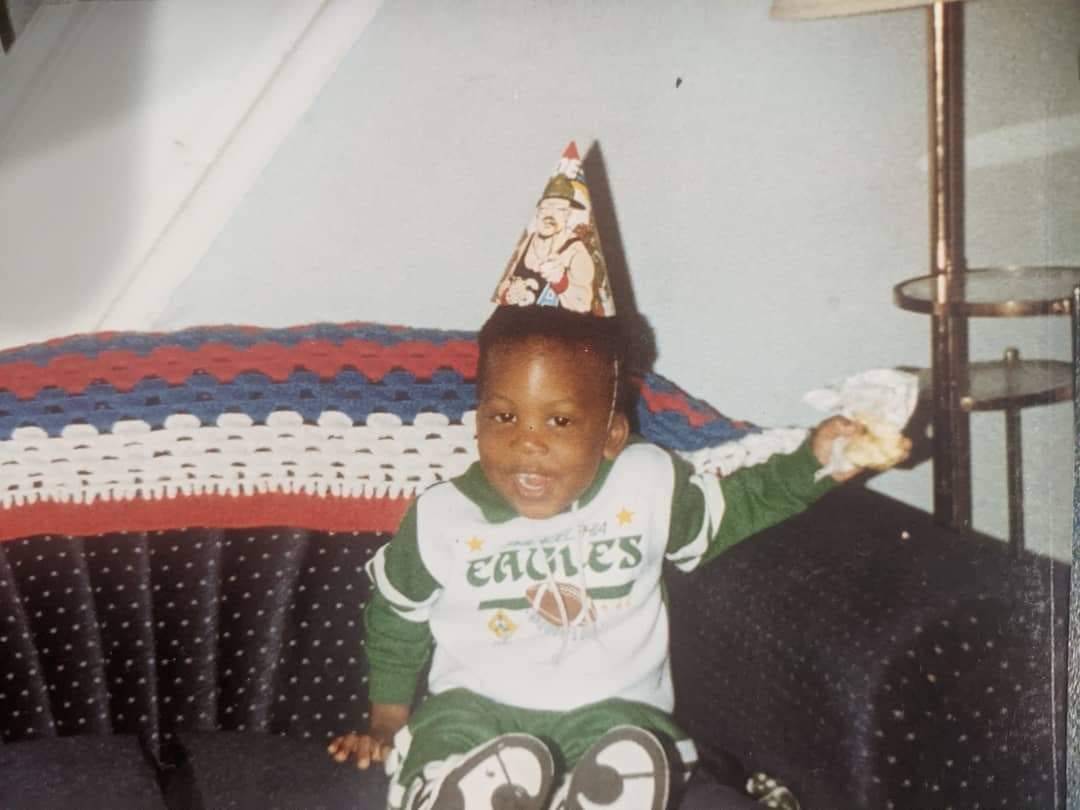
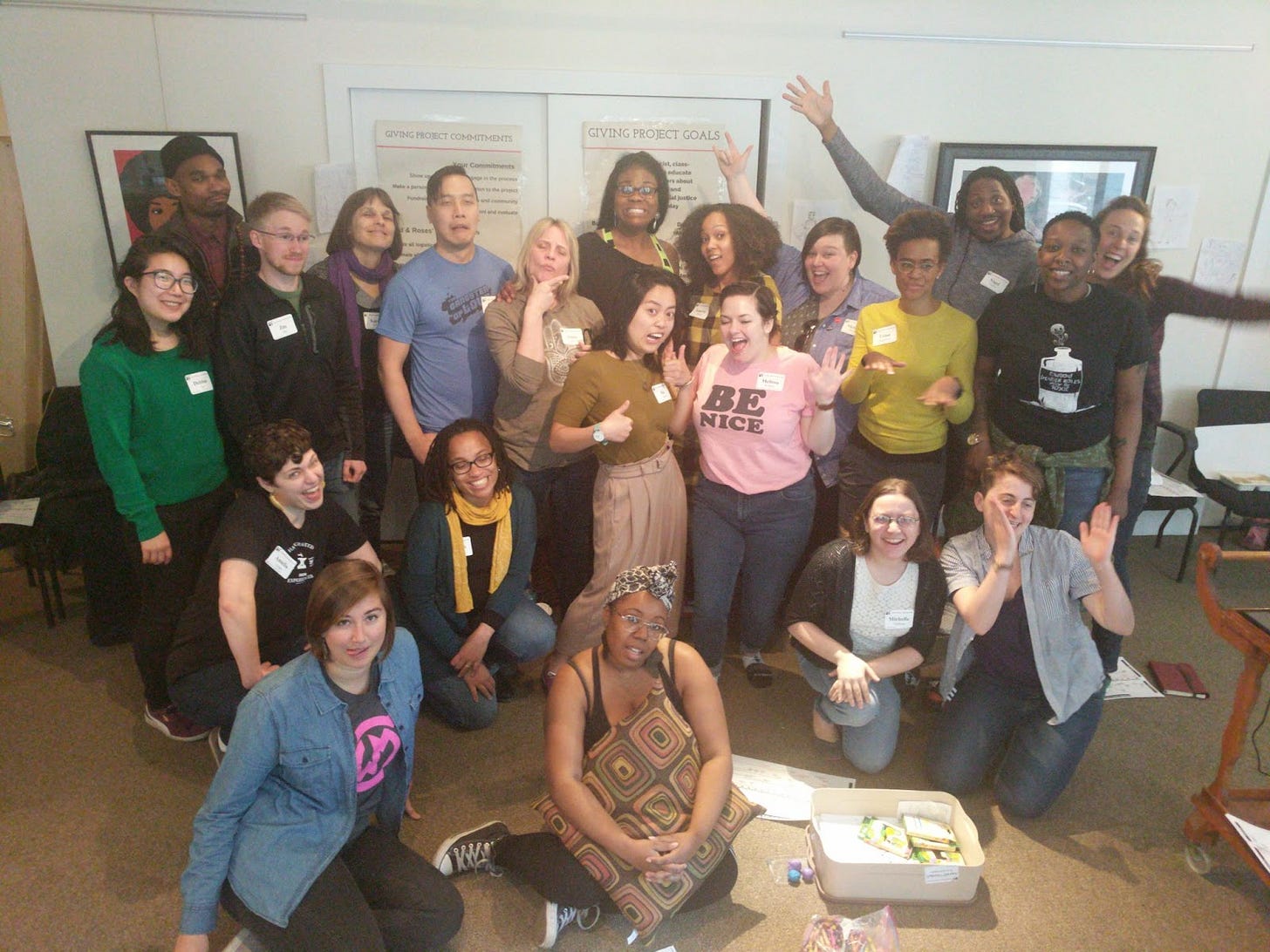
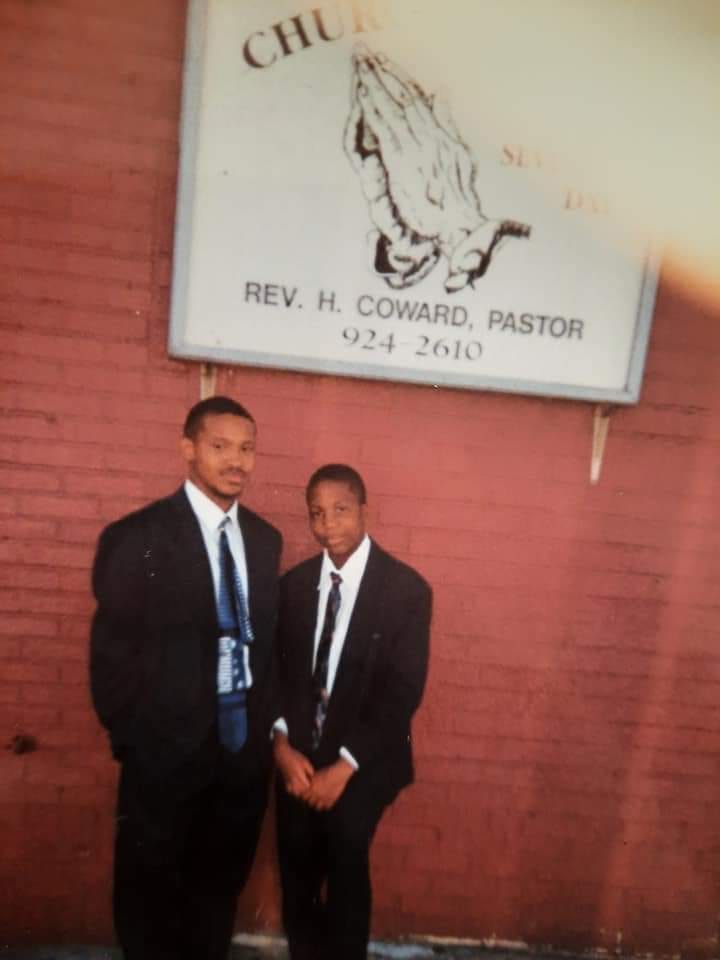
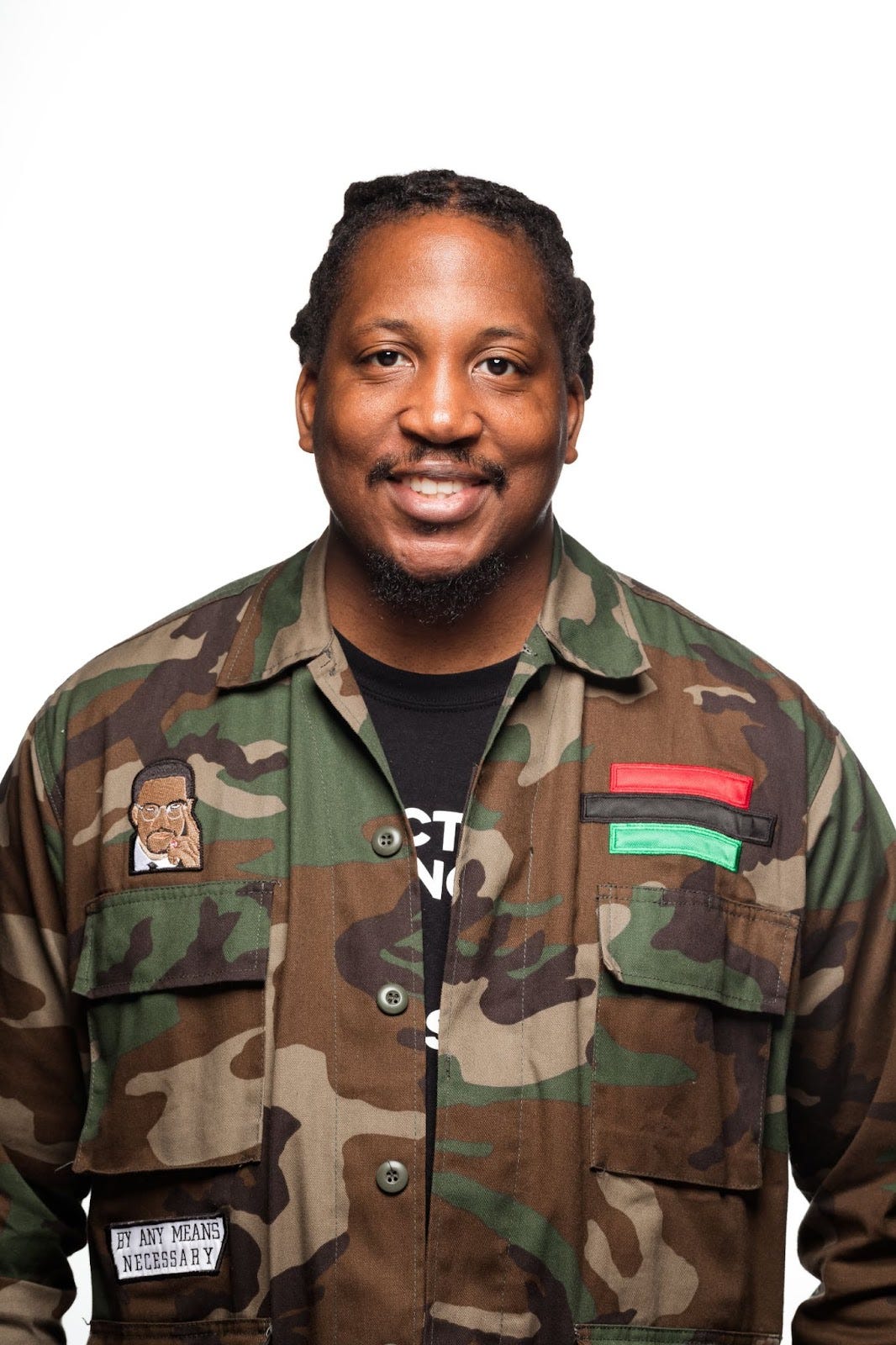
Nigel’s vision and praxis of donor organizing resonates a lot with Grassroots International’s Solidarity Philanthropy framework. Thanks for working on this piece, Nigel and Michael.
I love this.